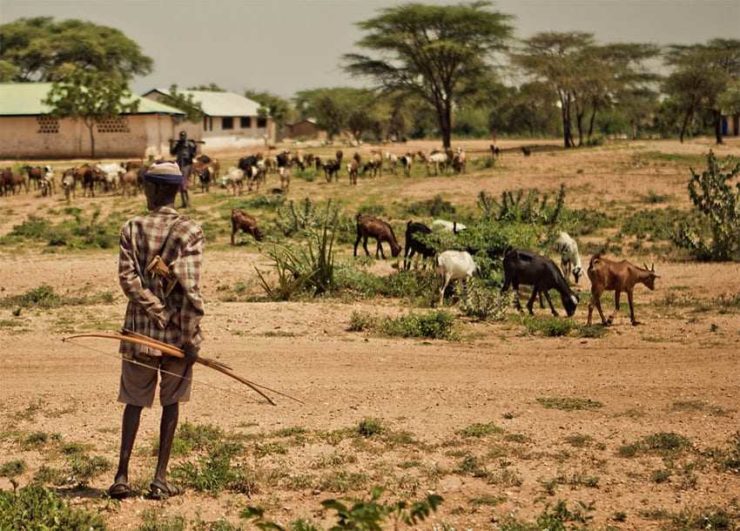
The trend in recent years and even months to talk more and more frequently and actively about the Global South as such, and about Africa in particular, may in some cases be seen as a fashionable, superficial fad, but it is not without a significant practical component. Even a cursory analysis of the dynamics of bilateral meetings and summits with an “African focus” is the most vivid illustration of the “turn to Africa” in the policies of the leading powers and regional centres of power. Russia, the United States, Italy, India, Iran, China – this is by no means an exhaustive list of states that have expressed an interest in initiating, resuming or rethinking contacts with the African continent and have already taken concrete steps. Today’s article focuses on India, one of the world’s fastest-growing economies, which has a centuries-old experience of cooperation with the “African shore”. Analysing the evolution of the format of this relationship, as well as the changing priorities of the Indo-African partnership, provides a unique opportunity to compare the merits of politically and economically driven approaches, and to consider the context in which they are applied.
When India gained independence from Britain in 1947, its policy towards Africa was undoubtedly based on two key assumptions: 1) With a similar historical background, including decades of colonial oppression by Europeans, India acted as a “big brother”: the country was more than 10 years ahead of the black continent on the road to independence; 2) Given its long contacts with many parts of Africa, as well as the same historical memory and the absence of a full-fledged country division, India adopted a new policy in Africa in 1947. The main narratives in the discourse of the Indian leadership until the early 1960s remained the anti-war rhetoric embedded in the philosophical legacy of Mahatma Gandhi, who embodied the image of a fighter against the colonial system, as well as calls for cooperation among the countries of the Global South: in 1955, India actively participated in the Bandung Conference, which formulated the basic principles of South-South cooperation. However, with the outbreak of the Sino-Indian military conflict in 1962, it became clear that the ideological and political tools used by India’s early leaders were ineffective in the context of decolonisation: New Delhi found little sympathy from its African partners.
The rethinking of mechanisms that had proved inadequate is inextricably linked with the name of Indira Gandhi. When she came to power in 1966, a realist approach was adopted in Indian foreign policy. First of all, New Delhi no longer sought relations with Africa as such – a vague category and by no means a political entity – but with individual states, which implied a more practical approach and a system of country priorities. In addition, the Indian government embarked on development programmes, using its technological superiority as an attraction for African friends. Finally, the continued adherence to anti-colonial rhetoric proved relevant during Namibia’s struggle for independence. At the same time, these years saw the emergence of a rivalry between India and China for influence on the African continent.
Despite significant changes in the pattern of Indo-African cooperation, political considerations and instruments clearly prevailed over economic ones until the 1990s. However, the profound changes that swept through Indian society in the last decade of the twentieth century also had a decisive impact on foreign policy. As part of the process of economic liberalisation, the Indian authorities gradually began to adapt their economic instruments to international cooperation. For example, the business community was given the long-awaited opportunity to make foreign direct investments (FDI) – previously, the very possibility of such a decision and the volume of financing had been strictly controlled by the state. At the same time, Indo-African trade, which in the early 1990s was only about $1 billion, intensified. Within 30 years, India would become the fifth largest foreign country in terms of total FDI in Africa and the third largest in terms of total foreign trade turnover.
So far, the Narendra Modi government remains committed to prioritising economic interests over ideological and political considerations. There are a number of development programmes that New Delhi is implementing in African countries. Building on its rich experience in establishing diplomatic contacts, including major India-Africa summits (2008, 2011, 2014), India continues to expand its presence on the continent, including through a sharp increase in the number of embassies. It should also be noted that the Indian leadership has consistently demonstrated its ability to learn from its mistakes. For example, whereas in the past the process of implementing many of the agreements and deals concluded at India-Africa summits was extremely slow and inefficient, today the parties are engaged in intensive dialogue to monitor the implementation of projects, even in the ‘off-season’. Overall, this case study illustrates the flexibility and self-criticism that external actors need when developing cooperation with African states and other representatives of the Global South. The fact is that the changing regional context and the relative immersion of African governments and societies in the global agenda require the ability to be flexible in the choice of approaches as well as in their implementation.
Ivan KOPYTZEV – political scientist, research intern at the Centre for Middle Eastern and African Studies, Institute for International Studies, MGIMO, Russian Ministry of Foreign Affairs, especially for online magazine “New Eastern Outlook”